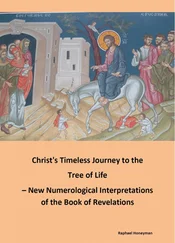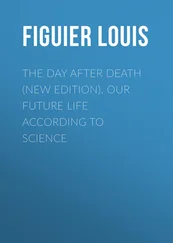Bevan proposed that family doctors should be paid a basic salary, and capitation fees on top. The sale of practices would be abolished and £66m was offered in compensation – a sum that even the BMA admitted was fair. 56On this Bevan was adamant. He was to tell the Commons: ‘I have always regarded the sale and purchase of medical practice as an evil in itself.’ 57It was ‘inconsistent with a civilized community … for patients to be bought and sold over their heads. When I am told that all they desire is that patients should have the best medical treatment, how can that be argued when a doctor succeeds to another doctor’s panel not on account of personal qualifications but on the size of his purse?’ 58In addition, he proposed that GPs should be encouraged to work in partnerships in health centres provided by local authorities. Bevan’s only substantive departure from the BMA’s own 1942 proposals was that he revived the controls, which Willink had dropped, to prevent new GPs entering over-doctored areas.
The BMA exploded. Doctors argued that the plans would lead to a full-time salaried service under either the state or local government. Doctors would be reduced to civil servants, clinical independence and freedom of speech would be threatened, and Bevan himself as Minister of Health would have enormous powers to direct them. Some of the language used now seems incredible. Dr Alfred Cox, a former secretary of the BMA, wrote to the British Medical Journal declaring: ‘I have examined the Bill and it looks to me uncommonly like the first step, and a big one, towards National Socialism as practised in Germany. The medical service there was early put under the dictatorship of a “medical Fuehrer”. This Bill will establish the Minister of Health in that capacity.’ Dr Cox was far from alone. At a meeting of 1000 doctors in Wimbledon Town Hall shortly after the Bill was published, Bevan was called ‘a dictator’ and ‘an autocrat’. ‘This Bill,’ declared one doctor, ‘is strongly suggestive of the Hitlerite regime now being destroyed in Germany.’ Another denounced the hospital proposals as ‘the greatest seizure of property since Henry VIII confiscated the monasteries’. 59
What Bevan proposed for the GPs was in the end what happened. And given both that the BMA had itself outlined remarkably similar proposals and that the doctors’ fears simply failed to materialise, an explanation of their apparently paranoiac reaction and the lengths to which they took the argument is needed. It falls in three parts. The first lies in the structure, history and some of the personalities of the BMA – particularly in the structure, which was to cause the association similar problems once a decade between the 1960s and the 1980s over various virulent disputes about doctors’ contracts. Second, the doctors’ fears were genuine and they had evidence to support their view that a full-time salaried service was the final goal. And third, the dispute about their contract was played out against the background of the hospitals being nationalised – a revolutionary departure which left plenty of room for argument about its implications.
The BMA was in some ways the very model of democracy, but it was an unwieldy democracy. Its nominal governing body was and is the representative body, normally called together at the annual representative meeting. It could take binding ‘decisions of the association’ by two-thirds majority. Below that was the council, a large body of some seventy members. The day to day work, however, was undertaken by the chairman, the secretary and his staff (at this time the BMA had no executive) and through the ad hoc negotiating committee. The chairman was one Dr Guy Dain, a pocket battleship of bristling energy, a strong believer in individualism whose motto was that ‘responsibility is the salt of life’. (He had it translated into Latin when he was knighted.) He had become convinced ever since Ernest Brown’s suggestion of a salaried service in 1943 and since the report of ‘that old blighter Beveridge’ that the ministry wanted to turn doctors into civil servants. John Pater, a civil servant at the time, judges he became ‘increasingly emotional’ in his belief that he was defending the freedom of the profession. 60Dain and Hill, however, while they could negotiate as spokesmen, could not agree terms without reference back to the representative body.
Anything the BMA’s negotiators came back with had to be manoeuvred through these conferences and meetings. And the plain fact for the BMA was and is that it is always easier to make an impassioned speech against any proposal than a reasoned, and possibly complex one, for it. Dr Charles Hill, thirty years after the event, conceded:
It is undeniable that emotional outbursts in public at critical times, inevitable in a large body at times of crisis, did sometimes embarrass the profession’s spokesmen by the headlines they stimulated and the somersaults of policy they encouraged … Furthermore, the Representative Body did declare itself – in advance of any Government plans – in favour of many features of a health service which it subsequently rejected. It did tend sometimes to ignore such gains as its representatives had secured and immediately to switch its attention to the points on which it had not won, however important or unimportant they were. Balance sheets of gains and losses are not always judged dispassionately in large assemblies, where oratory and emotion prevail. Tactics are better devised in private by the few than publicly by the many. 61
Thus, not to be overthrown, BMA negotiators have often on platforms to sound at least as militant as the most militant of the voting doctors before them – people who were no mere cannon fodder but articulate and almost by definition individualistic men and women. More than once in the next fifty years, the association was to paint itself into corners in this way.
Furthermore, then more than now, those doctors who attended the representative body and the council were not necessarily representative of the profession as a whole. In the 1940s, the BMA was much more GP-dominated than it was to become. The Royal Colleges, whose role strictly is to supervise education and standards, not pay and rations, also played more part in medical politics than they did in later years. Harry Eckstein, an early chronicler of the founding of the NHS who also produced a detailed study of the BMA as a pressure group, observed that to partake in medical politics doctors needed money and time. At a time when many GPs in poorer areas were low earners, the representative body meetings were ‘inevitably weighted in favour of age, affluence, private practice and the suburb’. In other words, those who had least to gain as doctors from a National Health Service were more likely to be those who voted at the BMA’s very public and well reported meetings, and the decisions of those meetings were strongly reflected in the interpretation of events and advice that BMA leaders then put to doctors in the rash of plebiscites between 1946 and 1948. Bevan found, as Lloyd George had put it in 1911, that ‘a deputation of doctors was a deputation of swell doctors’. 62
Dain, Hill and the members also remembered history. Lloyd George had, to an even greater extent than Bevan, refused to negotiate with the medical profession over the National Insurance Act. In 1913 the BMA had assembled 27,400 signed pledges from family doctors refusing to participate until its terms were met. Ironically, in a position that was reversed in the 1940s, it had then been the consultants, who were unaffected by the measures, who largely orchestrated the opposition. 63When the 1911 Act came into force, however, GPs fearing they would lose potential patients to rivals, suddenly signed on in droves, leaving the association routed, divided and humiliated. This time, Dain and Hill, desperate to maintain the doctors’ unity and preserve the BMA, repeatedly consulted the troops, calling special representative meetings and holding plebiscites which only helped give publicity to the more furious opponents of the proposals.
Читать дальше
![Nicholas Timmins The Five Giants [New Edition]: A Biography of the Welfare State обложка книги](/books/701739/nicholas-timmins-the-five-giants-new-edition-a-cover.webp)











